|
|
|
Editor's note
|
|
Nau mai haere mai - welcome to your New Zealand newsletter.
This week, we launch Climate Explained, a collaboration with Stuff and the Science Media Centre, to answer your questions about our changing climate. As parliament considers zero carbon legislation, polls show that four in five New Zealanders think that climate change is an important issue, but many feel they don’t have all the information they need. In the first in this series, University of Otago environmental health lecturer Alex McMillan responds to a reader’s query about whether climate change will make us less healthy.
Today, the world also learned about Heracles inexpectatus, an extinct parrot that stood nearly a metre tall. Fossil bone fragments sat undiscovered on a museum shelf for more than a decade. They were part of a collection of 20 million-year-old fossils from St Bathans in Central Otago - a site that has already revealed much about New Zealand’s prehistoric fauna. Here, Trevor Worthy, at Flinders University, tells the story of the giant parrot's discovery and how it fits into the family of New Zealand’s many unusal birds.
Almond milk or almond juice? That’s a question University of Waikato philosophers Dan Weijers and Nick Munn ponder in this response to the dairy industry’s call to restrict the use of the term “milk” to animal products. And the Prime Minister’s Chief Science Advisor, Juliet Gerrard, and her team take a close look at two major reports on artificial intelligence, published by the Royal Society of New Zealand Te
Apārangi and the Australian Council of Learned Academies.
There’s a lot more in this week’s newsletter and on the New Zealand page. Feel free to pass this on to anybody you think might enjoy it - they can subscribe to this newsletter here. As always, many thanks for reading. He mihi kia a koutou katoa.
|
Veronika Meduna
New Zealand Editor
|

|
|
Top stories
|

Climate change, together with other ecological pressures, may well undo the gains we have made in health.
from www.shutterstock.com
Alexandra Macmillan, University of Otago
Do you have a question about climate change? This collaboration between The Conversation, Stuff and the New Zealand Science Media Centre gives you the chance to ask – and we'll provide expert answers.
|
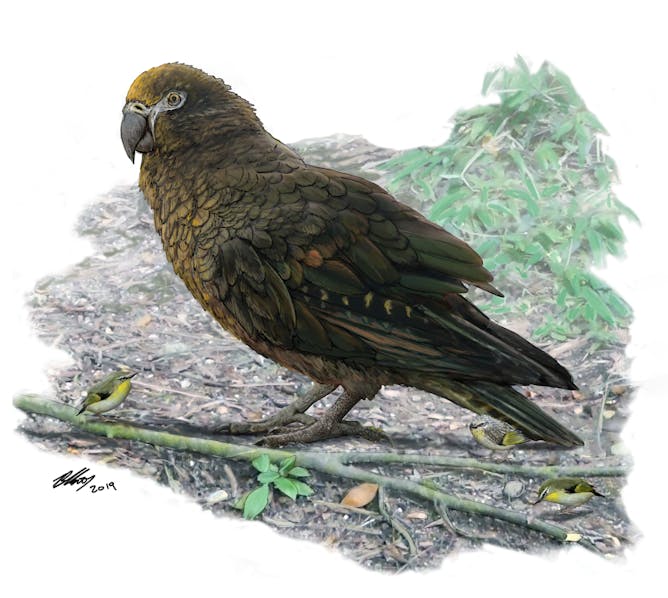
Heracles inexpectatus on the forest floor, with three small wrens foraging at its feet.
Brian Choo
Trevor H. Worthy, Flinders University
The newly discovered _Heracles inexpectatus_ stood nearly a metre tall. And its fossil bones sat undiscovered on a museum shelf for more than a decade before its hefty status was finally appreciated.
|
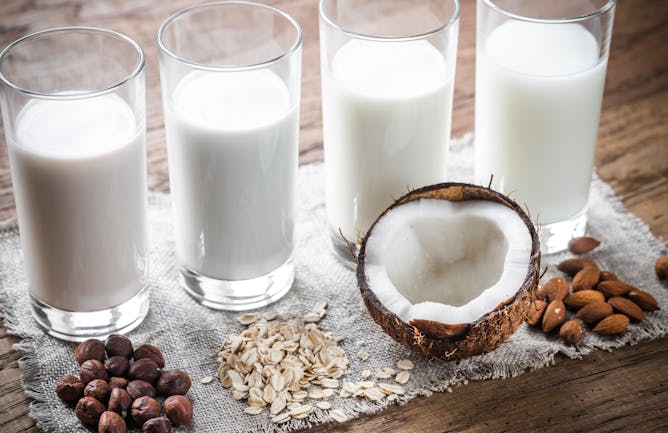
A rural advocacy group in New Zealand wants milks made from plants, such as almond or rice milk, called juices.
from www.shutterstock.com
Dan Weijers, University of Waikato; Nick Munn, University of Waikato
New Zealand's dairy industry is arguing consumers are being misled if the term "milk" is used for plant-based products such as almond or coconut milk, but consumers are savvier than that.
|

Specialist machine learning and narrow AI could help us to start removing the “four Ds” - dirty, dull, difficult, dangerous - from our daily work.
from www.shutterstock.com
Juliet A. Gerrard, University of Auckland; Kyle Webster, University of Auckland; Stuart McNaughton, University of Auckland; Tahu Kukutai, University of Waikato
Artificial intelligence is predicted to contribute some US$15.7 trillion to the global economy by 2030. A new report looks at issues specific to New Zealand.
|

Australia and Russia could soon be the last remaining developed nations without fuel efficiency standards, with New Zealand proposing new rules and financial incentives to get more people driving cleaner cars.
www.shutterstock.com
Robert McLachlan, Massey University
New Zealand has proposed new fuel standards, along with a consumer rebates for cleaner cars – paid for by higher costs for high-polluting cars – to cut its rising transport emissions.
|
From The Conversation's international editions
|
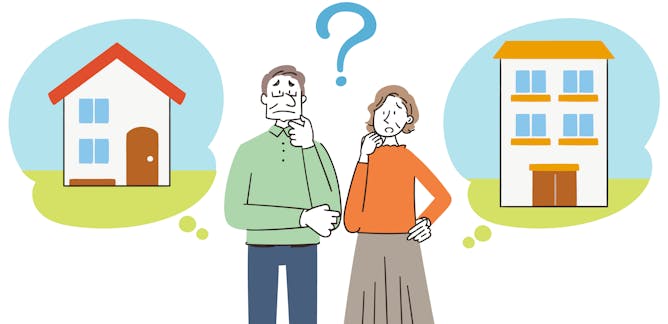
Amity James, Curtin University; Sharon Parkinson, Swinburne University of Technology; Steven Rowley, Curtin University; Wendy Stone, Swinburne University of Technology
Most older Australians want to live in a home they own, preferably in the middle and outer suburbs of a city. But increasing numbers look unlikely to realise their housing aspirations.
| |

Kamran Khalid, University of Sydney
The Indian state of Jammu and Kashmir is situated mostly in the Himalayas. For decades, it had its own constitution, flag and the ability to make its own laws.
|

Hui Feng, Griffith University
President Trump's decision to slap tariffs on US$300 billion of China's exports has set up a currency war that has engulfed Australia.
| |
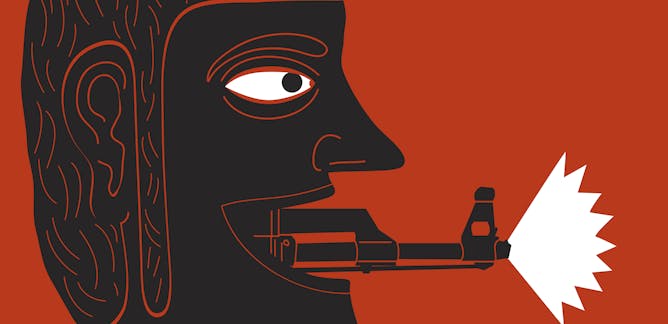
Robert Myers, Alfred University
Each spin of the news cycle hits us with another 'bombshell,' while everything from free speech to race has been 'weaponized.' What's the effect of being relentlessly exposed to metaphors of war?
|

Lacey Wallace, Pennsylvania State University
More than 40 percent of U.S. adults have a gun in their household, making it hard to get guns off the streets – even if new gun restrictions are passed.
| |
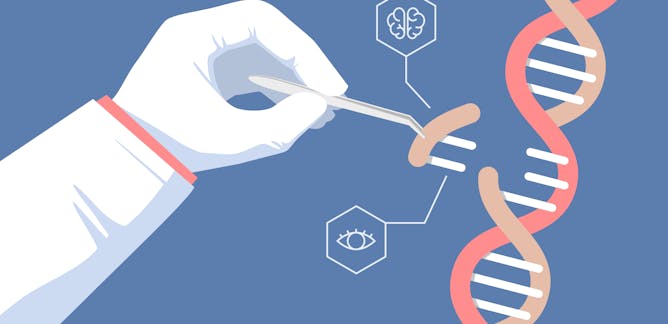
James Davies, University of Oxford
A Russian scientist is preparing to do germline gene editing. Here's why that's a problem.
|
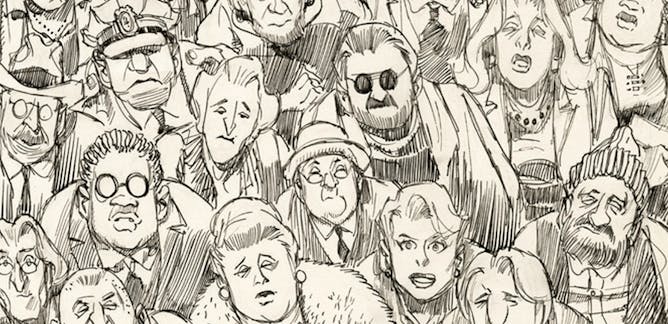
Jean-Matthieu Méon, Université de Lorraine
It's the 100th anniversary of the birth of graphic novel pioneer Will Eisner.
| |

Lianne Tomfohr-Madsen, University of Calgary; Ivan Sedov, University of Calgary
Insomnia impacts more than 20 per cent of women during pregnancy. And it is treatable.
|
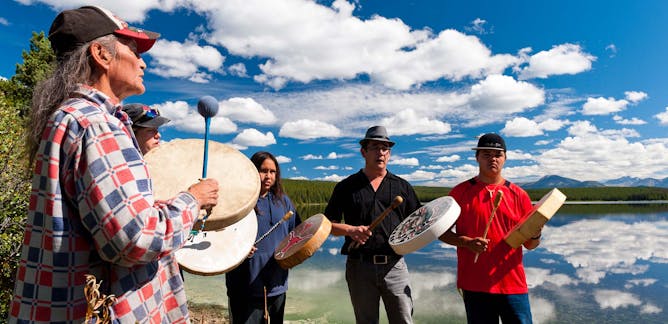
Justine Townsend, University of Guelph; Faisal Moola, University of Guelph; Megan Youdelis, University of Guelph
Dasiqox Tribal Park offers a powerful example of what true reconciliation can mean for Canada when Indigenous peoples and their rights are respected and upheld.
| |
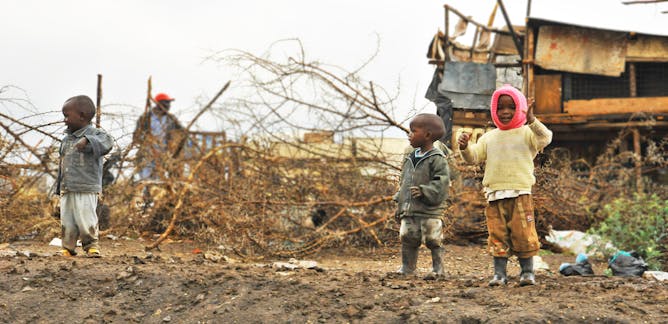
Patricia Kitsao-Wekulo, African Population and Health Research Center; Margaret Nampijja, African Population and Health Research Center
We found that women who had access to subsidised day-care services were 17% more likely to be employed than those who were not.
|
|
|
| |
| |
| |
| |
| |
| |
|
|
|
|
|
|
|